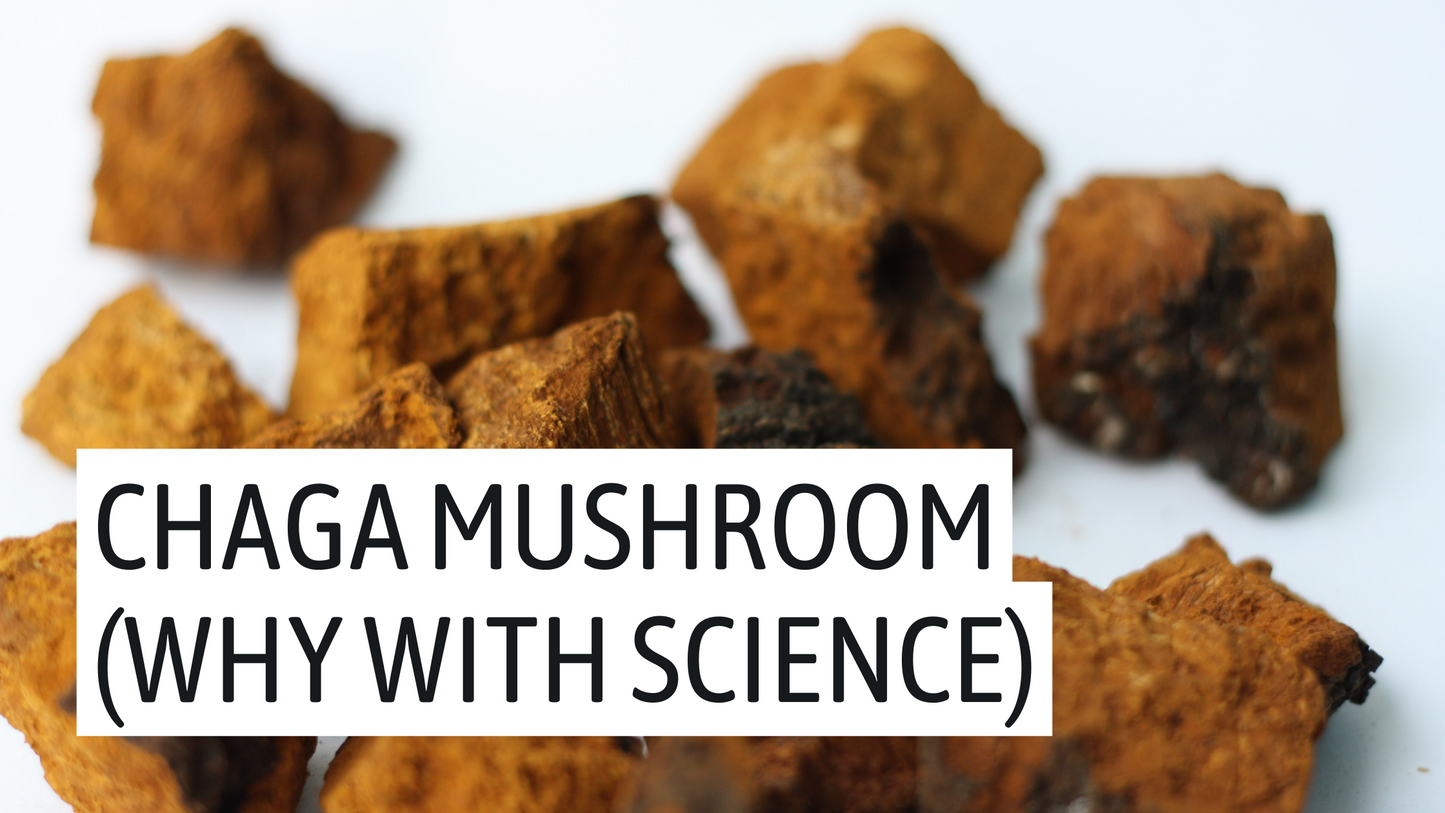
Chaga and the magic within!
This post is a little more sciency - and focused on Betulinic acid in Chaga - we've been digging deep and finding all kinds of sources to bring you some more dense info on our mushrooms powders.
Here is a deeper dive into Betulinic acid which can be found in Chaga mushroom! (exciting).
The rest of this is very direct and to the point, it's worth the read though!
Betulinic acid is a naturally occurring triterpenoid found in various plants and mushrooms, including chaga (Inonotus obliquus). Chaga is a fungus that grows predominantly on birch trees and has been used for centuries in traditional medicine for its potential health benefits.
Betulinic acid is believed to be one of the key bioactive compounds in chaga, and it has attracted a lot of attention in recent years due to its numerous potential health benefits.
One of the unique features of betulinic acid in chaga is its anti-cancer properties. In vitro and in vivo studies have shown that betulinic acid has selective cytotoxicity against cancer cells while sparing normal cells.
Another unique characteristic of betulinic acid in chaga is its anti-viral activity. Studies have shown that it has potent anti-HIV activity by inhibiting the activity of the viral protease enzyme. Betulinic acid has also been found to inhibit the replication of other viruses, including herpes simplex virus and hepatitis C virus.
Betulinic acid in chaga also exhibits anti-inflammatory properties. Inflammation is believed to be a contributing factor to many chronic diseases, including heart disease, diabetes, and cancer. Betulinic acid has been shown to inhibit the production of pro-inflammatory cytokines and enzymes, which could make it a potential treatment option for inflammatory diseases.
In addition to its anti-cancer, anti-viral, and anti-inflammatory properties, betulinic acid in chaga has also been found to have antioxidant activity.
Free radicals are unstable molecules that can damage cells and contribute to the development of various diseases. Betulinic acid has been shown to scavenge free radicals and protect cells from oxidative stress. Awesome. Yes please and thanks!
A simple conclusion? Betulinic acid in chaga is a unique and promising bioactive compound that has the potential to offer a wide range of health benefits.
While more research is needed to fully understand its effects, preliminary studies suggest that it could be a valuable addition to the arsenal of natural compounds used to prevent and treat various diseases.
References:
Park, Y.-K., et al. "Chaga mushroom extract inhibits oxidative DNA damage in human lymphocytes as assessed by comet assay." Biofactors 21.1-4 (2004): 109-112.
Youn, M.-J., et al. "Chaga mushroom (Inonotus obliquus) induces G0/G1 arrest and apoptosis in human hepatoma HepG2 cells." World Journal of Gastroenterology 14.34 (2008): 511-517.
Lee, S.-H., et al. "Anti-cancer effect and structural characterization of endo-polysaccharide from cultivated mycelia of Inonotus obliquus." Life Sciences 79.1 (2006): 72-80.
Yoon, H.-G., et al. "The protective effect of Inonotus obliquus against hydrogen peroxide-induced apoptosis in human hepatoma cells." Phytotherapy Research 22.9 (2008): 1282-1286.
Shikov, A.N., et al. "Chemical and medicobiological properties of chaga (review)." Pharmaceutical Chemistry Journal 39.10 (2005): 560-568
